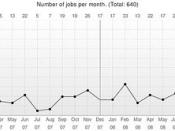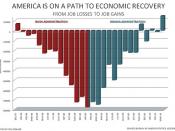Job's Suffering After being put through a great amount of suffering, when he appeared to have lived a righteous life, Job's world was torn apart. He could not repent and be forgiven, as he had nothing to repent for. Every friend he turned to turned against him, and he could find no personal resolve within the schemas and beliefs he had been living by his entire life. This left Job baffled, not with just with one question, but with many. What, if anything, had Job done wrong? Job went through a long list of asking such questions as, "Did I not weep for the unfortunate? Did I not grieve for the needy?" (30:25) Job posed the rhetorical question of the whereabouts of G-d. Why was He doing this to him? Enraged by the rebuke of his neighbors and companions, Job even seemed to have asked openly and verbally if G-d had a sense of justice.
Before the one to whom Job had directed his questions responded, Job's friends and neighbors took it upon themselves to respond for G-d, and did so at great length. The reoccurring theme of these arguments seemed to have been that G-d is great. Job and those who gave him council spent half their breath praising G-d, and telling of the wondrous deeds He alone could do, which could not be equaled by any man He had created. Job's friends insisted that it was wrong to challenge or question G-d, when man was so worthless in His shadow. They implied that even if Job could possibly be right, it would be better to suffer his burdens, than to go head to head with the creator of the Universe. One of Job's friends brought up the point that G-d is unaffected by man's good or bad deeds, and that his punishments and rewards are not merely deterrents set to modify man's behavior in the wake of free will, but that His decisions are the epitome of justice, which G-d deals out with great wisdom.
Job countered the argument by citing that there are wicked people in the world who prosper, just as there are good who do not receive their fair share during their span spent on this earth. Job's council kept returning with the contention of the might of G-d. That a being so inferior could not possibly fathom the Lord's motives and measures, and should exist within the realm of where He has placed him. Job admitted that their point was valid, and that it would most likely have been his own, had their roles been reversed, but never does Job relinquish his plea for answers from G-d, nor could he when it was he who was affected by G-d's puzzling actions.
When G-d made His entrance, He seemed to restate many of the arguments that had already been made on His behalf (although they most likely sounded a lot better coming from Him). Certain questions were answered immediately. Job now knew where G-d was. Also it appeared that G-d had been watching Job throughout the whole ordeal, so it was also known where G-d has been. G-d did not rebuke Job for any particular sin and did in fact reward him, which indicates that Job had not done anything to deserve his suffering. G-d did not directly answer questions about His sense of justice, nor did He place Himself on any sort of trial, but by stating His greatness, G-d did give some kind of answer.
When Job died, the text states that he died "contented" which implies that his questions were answered. It seems that what was said amounted to the fact that G-d does have a great since of justice, but it is in accordance with G-d's "grand design" so the average human being can not always comprehend the divine motives. The one question that was never answered was why Job was chosen to burden such affliction, but even that question had been made irrelevant by the fact that the wrongs made against Job were righted, and that every involved person's trust in G-d was refreshed and rebuilt so that whether they could understand Him or not, they would remain faithful and unwavering in their devotion.





